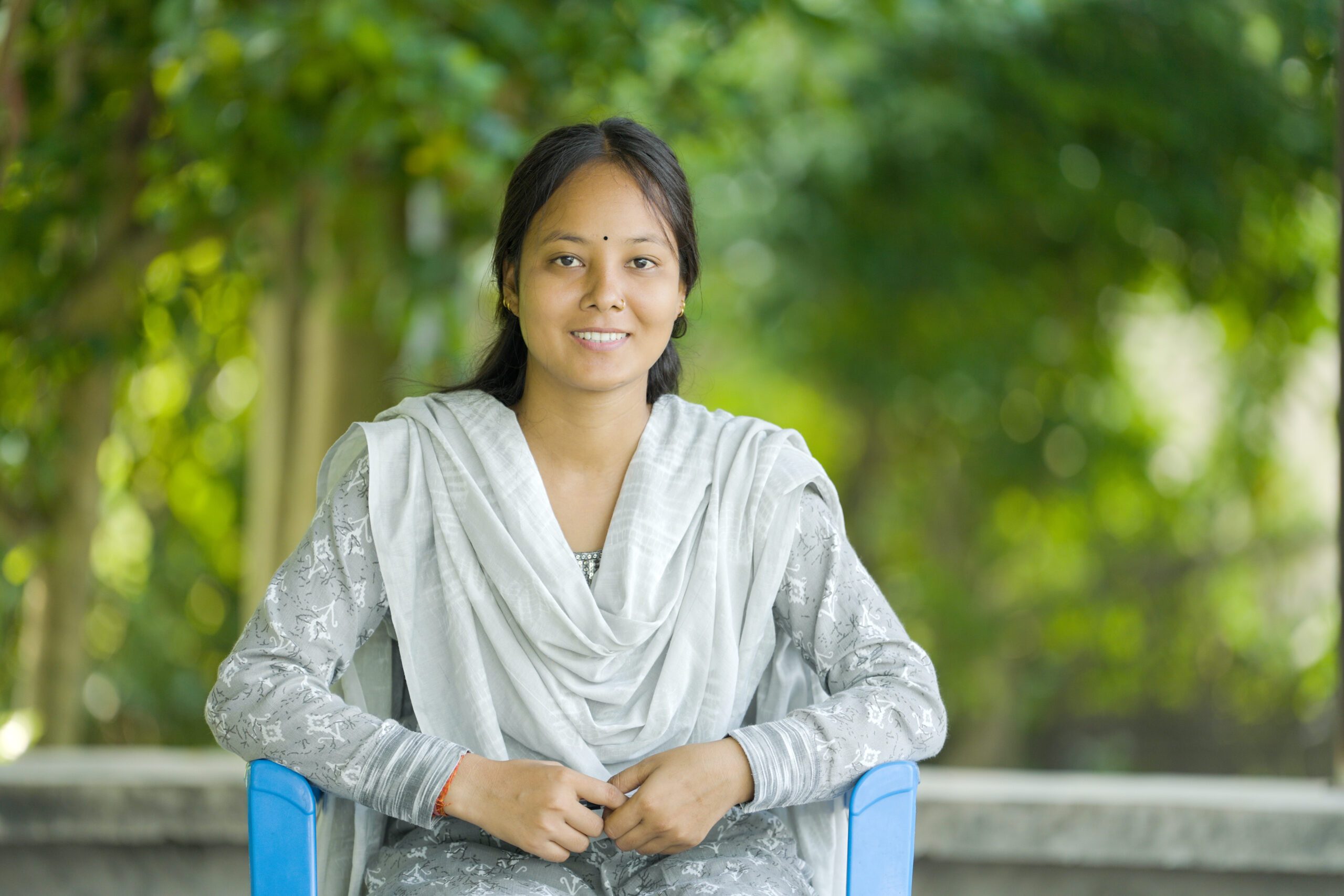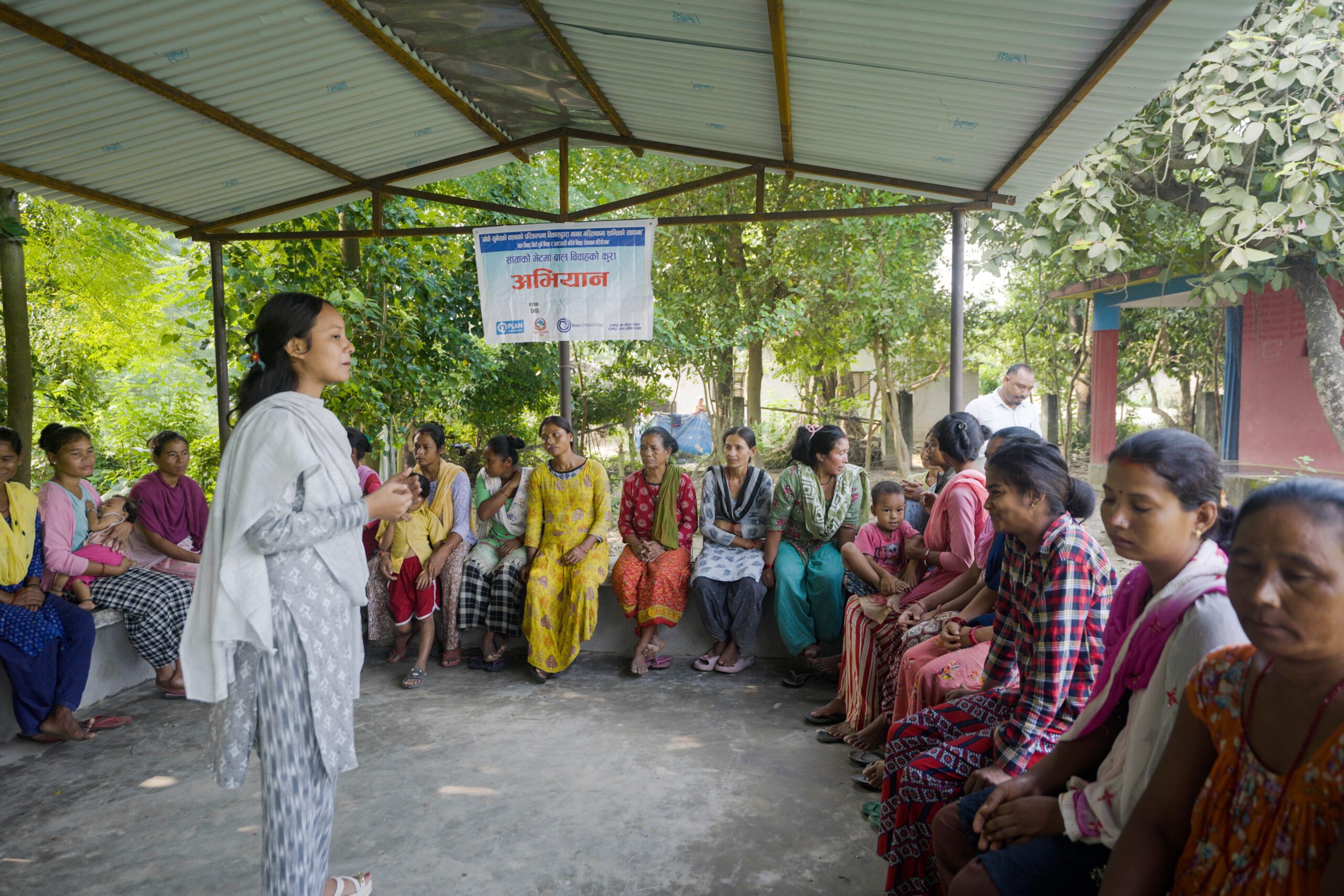Pramisha is stopping child marriage
Pramisha, president of a youth and women’s network in Bardiya, is leading efforts to end child marriage in her community. Through awareness campaigns and local partnerships, she empowers girls and families to make informed choices and protect their rights.

Standing against child marriage
“When I first started speaking against child marriage, people laughed at me,” says 22-year-old Pramisha from Bardiya. “They said I was just a young girl trying to challenge our culture. But I couldn’t stay silent when I saw how early marriage was affecting the lives of girls in my community.”
In the Tharu community in Bardiya, it is common for boys and girls as young as 13 or 14 to live together before marriage. Many even have children without being legally married. “This makes life difficult for both the young parents and their babies because they cannot register their marriage or get birth certificates for their children,” explains Pramisha. “I wanted to break this cycle.”
“I want to break this cycle.”
Pramisha
Today, Pramisha is the president of the youth and women’s network, a group supported by Plan International Nepal and local partner organisation, Banke UNESCO Club (BUC). Her journey began as a volunteer, and over the years, she moved from co-secretary to secretary and now president. “When I joined the network, I didn’t imagine one day I’d be leading it,” she says. “But this platform gave me a voice, and the confidence to use it.”
“People in my village mocked my mother for letting me join the campaign to end child marriage. They warned her that no one would marry me because I speak about our culture and sexual and reproductive health. In our community, girls are not expected to raise such issues.”
“My mother never gave in to their words. She told me, ‘Do what you believe is right, and don’t be afraid.’ Her trust gave me the strength to continue. Today, as a field coordinator at BUC, I’m not only raising my voice against child marriage but also working to prevent human trafficking. I’m proud that my mother believed in me.”
Bringing the community together
To address child marriage, Pramisha and her team coordinate closely with the local government, schools, and community leaders, including the Badghars, respected traditional leaders in Tharu culture. Together, they organise a weekly meeting on child marriage, a forum where adolescents, parents, and teachers come together to talk openly about the issue.
“In the meetings, we discuss why child marriage still happens, what the law says about it, and how it affects girls’ education, health, and future,” she explains. “We also talk about what parents and young people can do if they face pressure to marry early.”
At first, not everyone welcomed her message. “In the beginning, many people ignored me. Some even said I was spoiling the culture by stopping marriages. I became the most ridiculous girl in the community,” she says with a small smile. “But I didn’t stop. I knew I was doing the right thing.”
Over time, people began to listen. Parents started attending the meetings regularly, and teachers began supporting awareness activities in schools. “Now, when I visit villages, mothers come to me and say, ‘My daughter is studying because of what you said,’” shares Pramisha proudly.

Seeing change happen
Through her coordination with Badghars and local authorities, the youth women’s network has helped prevent more than 15 child marriages in the past 2 years. The police and community leaders now respond more quickly when early marriages are reported. “We have seen a clear change,” says Pramisha. “Before, child marriages happened openly. Now, people think twice. They discuss it first.”
The team also runs street plays, rallies, and awareness sessions across Baridya, focusing on adolescent girls and boys. “The discussions are open and honest,” says Pramisha. “We talk about relationships, rights, and how young people can plan their future responsibly. Many girls tell me they feel stronger now to say no to early marriage.”
Still, challenges remain. “In 2021, almost half of marriages in my community were child marriages. The numbers have gone down, but not enough. In some wards, it’s still rising again,” she says. “That’s why we are now expanding our meetings to every ward, not just the ones at high risk.”
Despite the difficulties, Pramisha stays committed. “Child marriage doesn’t just take away a girl’s education, it takes away her voice,” she says firmly. “I want every girl here to have that voice back.”
“Child marriage doesn’t just take away a girl’s education, it takes away her voice.”
Pramisha
Her leadership and determination are inspiring a new wave of youth activism in Bardiya. “I used to be called foolish,” she says, laughing. “Now, the same people invite me to speak at meetings. That’s how I know change is possible.”


